Have you dealt with Arab Muslims before? Do you want to sound more natural when you deal with them? Are you interested in Arabic? Do you want to know how to express Ramadan Kareem wishes in Arabic and learn some other Ramadan wishes in English? Then, continue reading to know different Ramadan Kareem wishes in Arabic.
Ramadan Kareem and Ramadan Mubarak are common greetings exchanged during the holy month, conveying wishes for a generous and blessed Ramadan, respectively. These greetings are rooted in Islamic tradition, with Prophet Muhammad PBUH emphasizing the significance of Ramadan and the blessings it brings.
The validity of such greetings in Islam is affirmed, as they serve to spread joy and remind individuals of their religious obligations. Various supplications and messages are shared to express well-wishes for Ramadan, encouraging individuals to engage in righteous deeds and seek forgiveness during this sacred time.
Table of Contents
Ramadan Kareem Meaning
Many people might ask: What does Ramadan Kareem mean? So, before we know the different ways to express Ramadan Kareem wishes in Arabic, it’s important to know its meaning and how to correctly use it.
The English equivalent of Ramadan Kareem is Generous Ramadan. In other words, it can be used to hope that Ramadan will be generous for the people you love. Another equivalent that has a similar meaning is “Ramadan Mubarak” which can be used to wish a blessed Ramadan for your family and friends.
Is Ramadan Kareem Haram to Say?
Here comes another important question: Is Ramadan Kareem Haram to say? As we know, when Muslims share such wishes, their main intention is to make the other person feel the spirit of the Holy month and make them happy
Hence, saying Happy Ramadan in Arabic, or any other Ramadan Kareem wishes in Arabic, does not pose any problem. There are many different ways to say a nice word, as long as we want to do it.
ramadan kareem in Arabic
Ramadan Kareem in Arabic is رمضان كريم and it is a common greeting during the holy month of Ramadan, meaning “Ramadan is generous.” It reflects the blessings, mercy, and generosity associated with this sacred time.
Muslims fast from dawn to sunset, engage in extra prayers, and give to charity. The greeting encourages kindness and sharing, with a common response being الله أكرم (Allah is more generous). Ramadan is a time for spiritual growth, gratitude, and compassion.
Islamic Validity for Happy Ramadan Wishes
To begin with, what is the validity in Islam for Ramadan Kareem greetings? Well, as Muslims we are not allowed to follow any religious innovations. That’s why we should take care of our actions in this regard.
For happy Ramadan wishes, it mainly takes its validity in Islam from the Prophet (peace be upon him) saying: “There has come to you Ramadan, a blessed month, which Allah, the Mighty and Sublime, has enjoined you to fast. In it, the gates of heavens are opened and the gates of Hell are closed, and every devil is chained up. In it, Allah has a night which is better than a thousand months; whoever is deprived of its goodness is indeed deprived,” [Sunan an-Nasa’i].
“Thus, the messages that people send on Eids and occasions on which it is Islamically prescribed to congratulate one another or that are sent with the aim of reminding people to do particular acts of worship that have to do with the time when they are sent, are permissible.” [Islam Question & Answer].
Experience Riwaq Al Quran Classes
Watch real moments from our live sessions at Riwaq Al Quran and see how we bring learning to life. These clips highlight our interactive, student-focused approach designed to keep learners engaged, motivated, and actively involved in every step of their educational journey.
Is There Any Specific Wording for Happy Fasting Greeting in Islam?
Indeed, there is no specific wording that the Muslim has to use to offer congratulations for the beginning of Ramadan, so it is permissible to any Ramadan Kareem wishes they want in any wordings that are customary among the people, such as saying “Kull ‘Aam Wa Antum Bi Khayr” and other words that do not contain any forbidden meanings in Islam. [Islam Question & Answer]
The Month of the Quran
Ramadan holds an irreplaceable place in the hearts of all Muslims. In addition to sharing different Ramadan Kareem wishes in Arabic and English, we all try our best to spend Ramadan in a productive way and do as many good deeds as we can.
Since Ramadan is the month of the Quran, we created a special Ramadan Quran reading schedule for you to make the most of the blessed month and create a stronger relationship with Allah SWT.
Ramadan Kareem Wishes in Arabic and English
Now, after making sure of the validity of Ramadan greetings in Islam, it is time to know how to know some Ramadan Kareem messages and how to use different Ramadan Kareem wishes in Arabic:
– Ramadan Kareem رَمَضَان كَرِيم
Ramadan Kareem means “have a generous Ramadan” in English. You wish your speaker to acquire the benefits of this honorable month. It is regarded as one of the most famous happy Ramadan wishes.
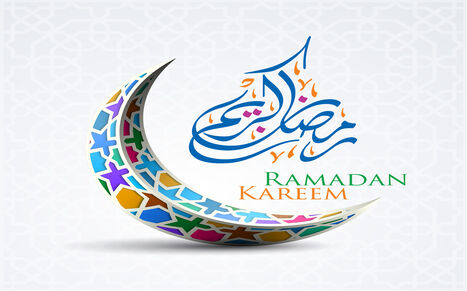
– Ramadan Mubarak رَمَضَان مُبَارَك
This is more favorable for some Muslims. Ramadan Mubarak Arabic meaning is: have a blessed month. Thus, it indicates that there is much more blessing upon us from Allah in that month.
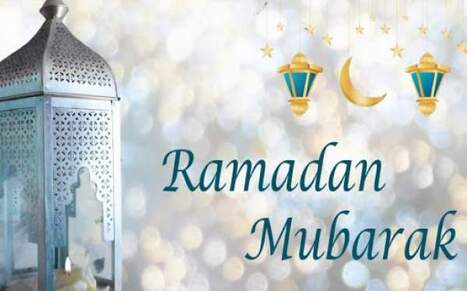
– Kul ‘Aamen Wa Antum Bi Khayr كُلُّ عَامٍ وَأَنْتُمْ بِخَيْر
Kull ‘Aamen Wa Antum Bi Khayr is also commonly used amongst the other Ramadan Kareem wishes in Arabic. It means: Every year and you are in goodness. Arabs also use it as a common greeting at the beginning of the year.
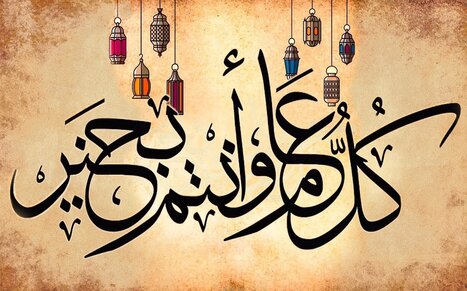
Ramadan Congratulation Message
Also, there are many supplications and other Ramadan Kareem messages that you can use to wish someone a happy Ramadan.
– Takabbal-Allahu Minna Wa Minkum Salihal A’maal تَقَبَّلَ اللهُ مِنَّا وَمِنْكُمْ صَالِحَ الأَعْمَال
This supplication means may Allah accept all our righteous deeds.
– Mubarak Laka Ann Ballaghaka Allahu Ramadan مُبَارَكٌ لَكَ أَنْ بَلَّغَكَ اللهُ رَمَضَان
This supplication means congrats! Allah grants you the chance to live till this Ramadan.
– As’alu-Allaha Ann Yukrimaka Bil Maghfirah أسأل الله أن يكرمك بالمغفرة
This supplication means may Allah bless you with forgiveness.
– A’adahul-Allahu ‘Alaikun A’waman ‘Adeeda أعاده الله عليكم أعوامًا عديدة
This supplication means, may Allah grant you the chance to live for Ramadan for a lot of years.
TAs well as these nice duas and Ramadan Kareem wishes in Arabic. We created a simple Ramadan prayer guide that you can share with your family and friends to be well prepared for Ramadan!


How Do You Wish Someone a Happy Ramadan?
Moreover, there are other expressions and Ramadan Kareem wishes in Arabic that have similar meanings. Overall, they mean, Happy Ramadan. For example:
Mubarak ‘Alayka Ash-Shahr مبارك عليك الشهر
Kul Ramadan Wa Anta Bi Khayr كل رمضان وأنت بخير
Asakum Min ‘Awadah عساكم من عواده
Why Students Love Learning with Riwaq Al Quran
Hear directly from our students about how Riwaq Al Quran Academy has transformed their connection with the Book of Allah. Their experiences reflect the dedication, care, and quality that guide every step of our teaching.
Response to Ramadan Mubarak in Arabic
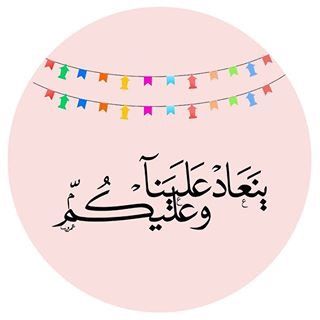
There are many ways to respond to Ramadan greetings in English and Arabic as well. For instance, if someone makes a supplication for you, like those previously mentioned, you can say: “آمين” i.e. May Allah accept your supplication.
Also, if someone wishes you a happy Ramadan, you can thank him using any expression, like “جزاك الله خيرًا” i.e. May Allah reward you with good. Then say, for example: “علينا وعليكم” i.e. For both me and you [the benefits of your greeting].
Then you can add some supplications or extra greetings. The basic ruling for greetings in Islam is obvious here. Allah the Almighty says in Quran: “And when you are greeted with a greeting, greet [in return] with one better than it or [at least] return it [in a like manner]. Indeed Allah is ever, over all things, an Accountant.” [Quran, 4: 86]
Read the Quran in 30 Days Schedule
One of the most frequently asked questions about the Ramadan Quran schedule is how to make a proper reading schedule and how to finish Quran in Ramadan in an organized and simple way.
The best way to complete it is to set a daily target and create a Ramadan Quran reading schedule. When you create an organized Ramadan Quran reading schedule, it will help you stay in the flow and finish the whole Quran recitation during Ramadan. Here is a simple and organized one:
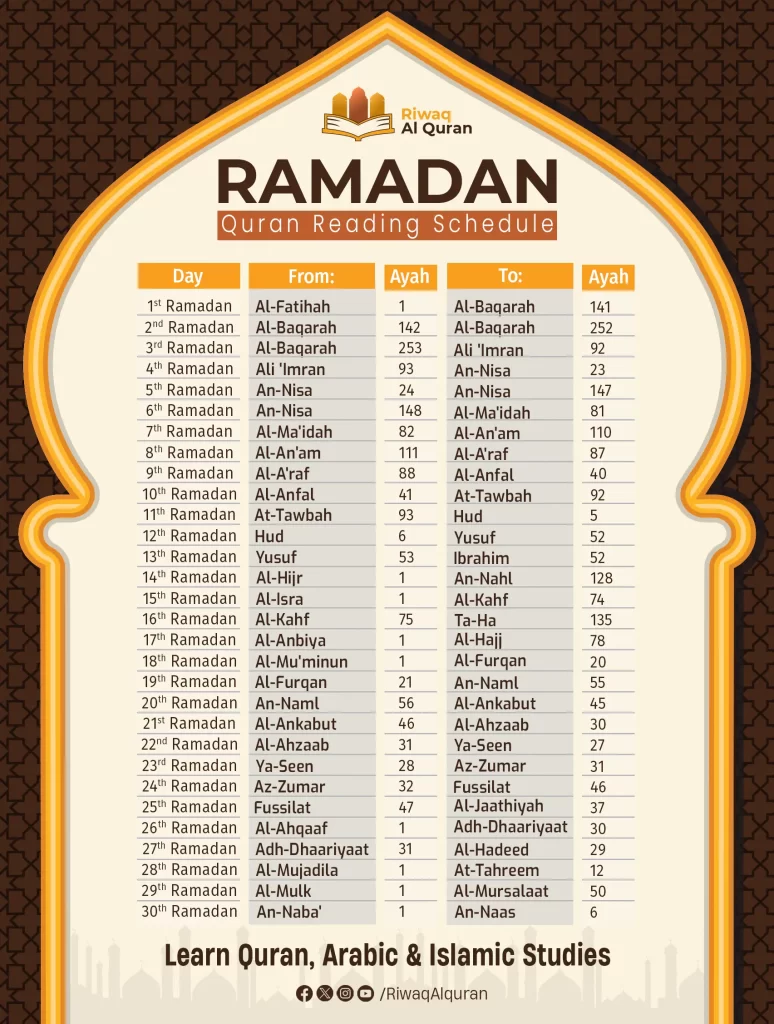
Learn Quran, Arabic And Islamic Studies Online With The Best Native Tutors
It is good to try to know about the Muslim culture in receiving Ramadan, or even to learn how to express Ramadan Kareem wishes in Arabic and to enrich your Arabic culture by learning different Arabic colloquial, such as Egyptian Colloquial.
In addition to learning Arabic, what greatly matters is to learn how to seize the opportunity of this month to come closer to the Quran. Thankfully, you can start this reading endeavor now.
We offer several courses such as:
- Online courses for kids.
- Online Quran classes for kids and adults.
- Online Arabic courses
- Online Ijazah courses
- Online Islamic Studies courses.


Conclusion:
Ramadan Kareem and Ramadan Mubarak greetings reflect the spirit of generosity and blessings associated with the holy month. Rooted in Islamic tradition and endorsed by Prophet Muhammad PBUH, these greetings serve to foster a sense of community and spirituality among Muslims worldwide.
With their validity affirmed in Islam, these expressions of goodwill play a significant role in spreading joy and reinforcing religious values during Ramadan. As Muslims exchange greetings and supplications, they are reminded of the importance of righteousness and seeking forgiveness, embodying the true essence of Ramadan.


































